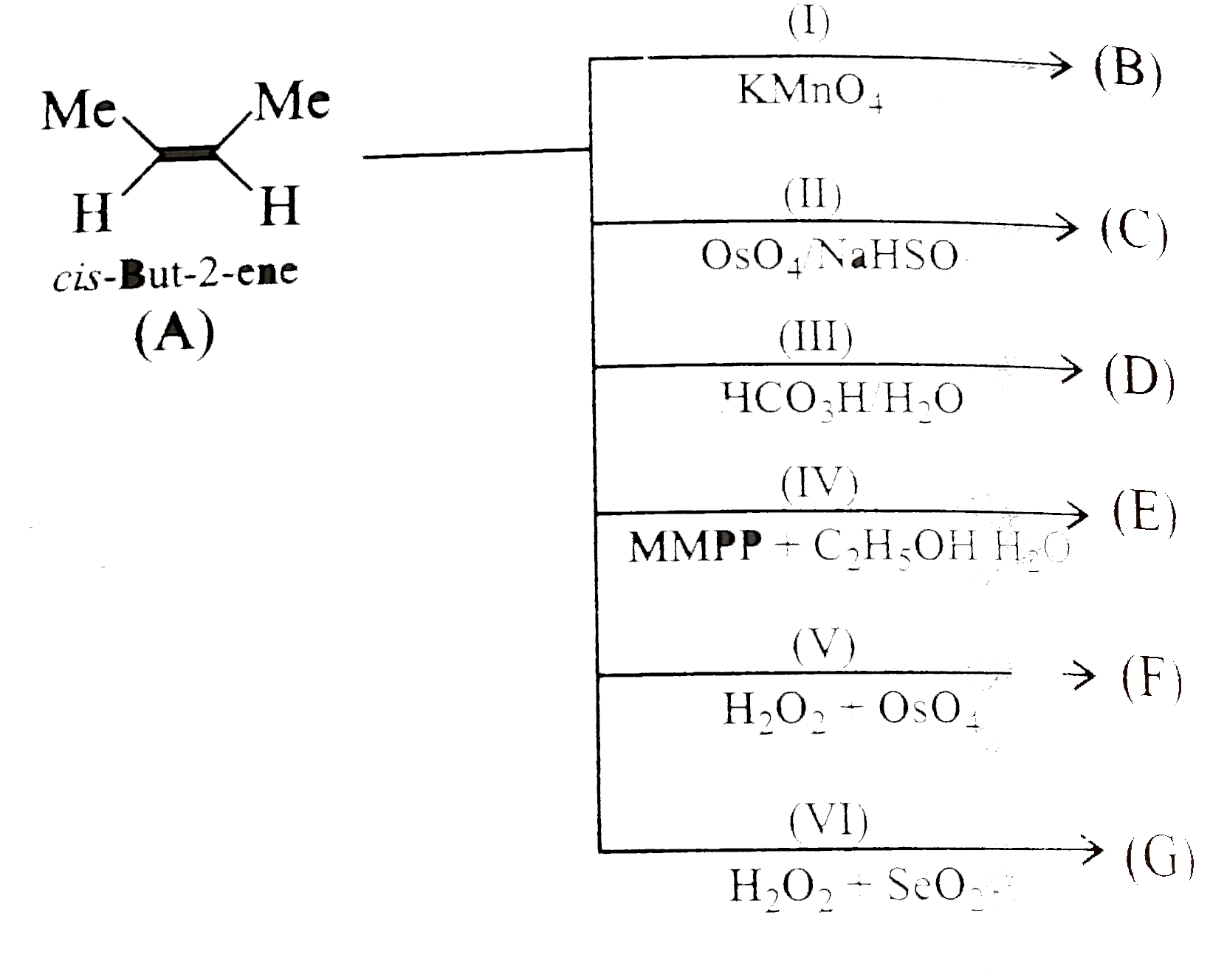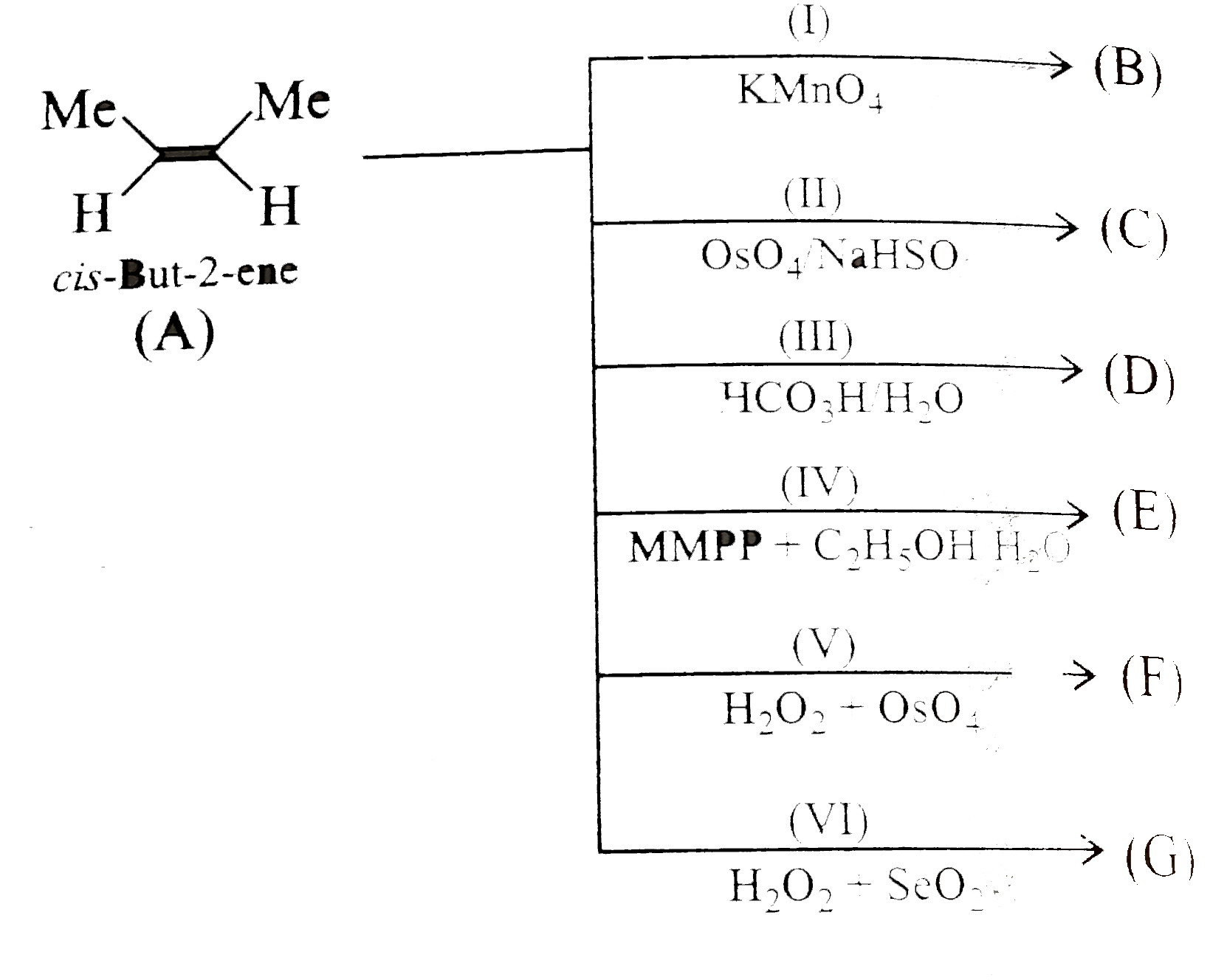Which of the following is an irreversible reaction?
2NH3→N2+3H2
PCl5→PCl3+Cl2
KClO3→KCl+O2
SO3→SO2+O2
The correct Answer is:C
To determine which of the following reactions is irreversible, we need to analyze each option based on whether the reaction can proceed in both forward and backward directions.
1. Option 1: 2NH3 ⇌ N2 + 3H2
- This reaction can proceed in both directions. Ammonia (NH3) can decompose into nitrogen (N2) and hydrogen (H2), and nitrogen and hydrogen can react to form ammonia again. Therefore, this is a reversible reaction.
2. Option 2: PCl5 ⇌ PCl3 + Cl2
- Similar to the first option, this reaction can also proceed in both directions. Phosphorus pentachloride (PCl5) can decompose into phosphorus trichloride (PCl3) and chlorine gas (Cl2), and PCl3 and Cl2 can react to form PCl5 again. Thus, this is also a reversible reaction.
3. Option 3: KClO3 → KCl + O2
- This reaction involves the decomposition of potassium chlorate (KClO3) into potassium chloride (KCl) and oxygen gas (O2) upon heating. The products formed (KCl and O2) are stable and do not readily revert back to KClO3 under normal conditions. Therefore, this reaction is considered irreversible.
4. Option 4: SO3 ⇌ SO2 + O2
- This reaction can also proceed in both directions. Sulfur trioxide (SO3) can decompose into sulfur dioxide (SO2) and oxygen (O2), and SO2 can react with O2 to form SO3 again. Hence, this is a reversible reaction.
Based on the analysis above, the irreversible reaction among the options provided is:
Answer: Option 3: KClO3 → KCl + O2
---
- This reaction can proceed in both directions. Ammonia (NH3) can decompose into nitrogen (N2) and hydrogen (H2), and nitrogen and hydrogen can react to form ammonia again. Therefore, this is a reversible reaction.
- Similar to the first option, this reaction can also proceed in both directions. Phosphorus pentachloride (PCl5) can decompose into phosphorus trichloride (PCl3) and chlorine gas (Cl2), and PCl3 and Cl2 can react to form PCl5 again. Thus, this is also a reversible reaction.
- This reaction involves the decomposition of potassium chlorate (KClO3) into potassium chloride (KCl) and oxygen gas (O2) upon heating. The products formed (KCl and O2) are stable and do not readily revert back to KClO3 under normal conditions. Therefore, this reaction is considered irreversible.
- This reaction can also proceed in both directions. Sulfur trioxide (SO3) can decompose into sulfur dioxide (SO2) and oxygen (O2), and SO2 can react with O2 to form SO3 again. Hence, this is a reversible reaction.
Topper's Solved these Questions
- CHEMICAL EQUILIBRIUMBOOK - VMC MODULES ENGLISHCHAPTER - CHEMICAL EQUILIBRIUMEXERCISE - Illustration
24 Videos
- CHEMICAL EQUILIBRIUMBOOK - VMC MODULES ENGLISHCHAPTER - CHEMICAL EQUILIBRIUMEXERCISE - SOLVED EXAMPLES
20 Videos
- CHEMICAL EQUILIBRIUMBOOK - VMC MODULES ENGLISHCHAPTER - CHEMICAL EQUILIBRIUMEXERCISE - EFFICIENT
50 Videos
- CHEMICAL BONDING-I & IIBOOK - VMC MODULES ENGLISHCHAPTER - CHEMICAL BONDING-I & IIEXERCISE - JEE Advanced (Archive)
98 Videos
- CHEMICAL KINETICS BOOK - VMC MODULES ENGLISHCHAPTER - CHEMICAL KINETICS EXERCISE - JEE Advanced (Archive)
52 Videos
Similar Questions
Knowledge Check
Which of the following is correct for the reaction ?
 AA is cyanohydrinBNucleophilic-addition reactionCThe above reaction is not shown by alkensDAll of these
AA is cyanohydrinBNucleophilic-addition reactionCThe above reaction is not shown by alkensDAll of these
Which of the following a disproportional reactions?
View SolutionWhich of the following is not a redox reaction?
View SolutionWhich of the following reactions are feasible ?
View SolutionConsider the following reactions :

Which of the following are stereospecific reactions ?
View SolutionConsider the following reactions :

Which of the following are stereospecific reactions ?
View SolutionConsider the following reactions :

Which of the following regioselective reactions ?
View SolutionConsider the following reactions :

Which of the following regioselective reactions ?
View Solution
